Bass Players to Know: Dee Murray
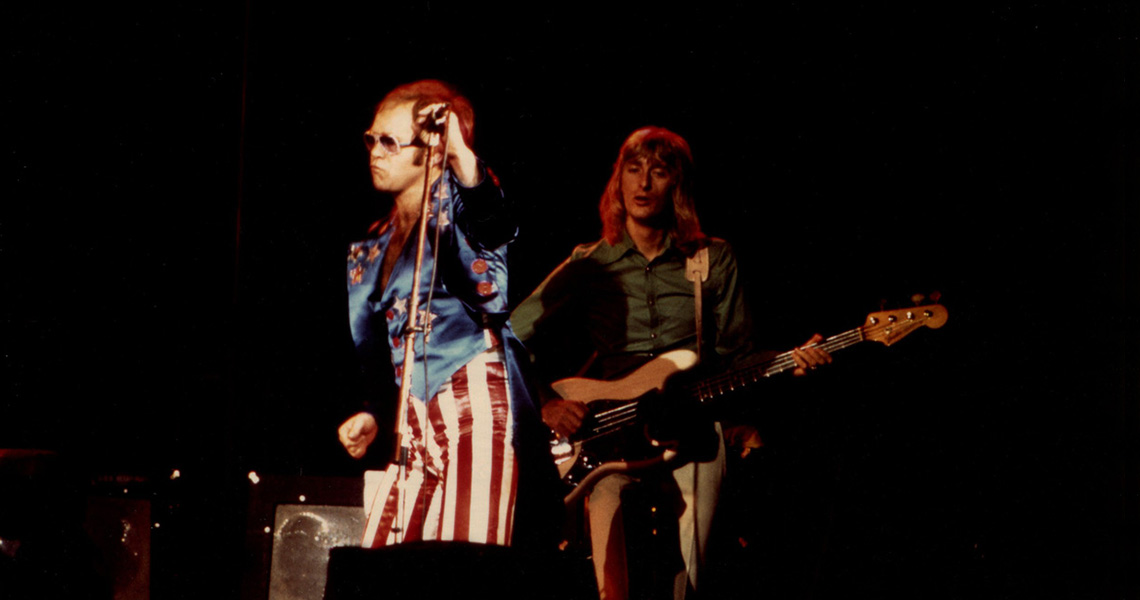
Every now and then, the car radio takes me by surprise. A station spins just the right song to pique my insatiable curiosity as I sit in traffic, easing the pain of running late by distracting me with a sing-along. An Elton John song is no anomaly when it comes to commercial radio, and for good reason… a tune like “Bennie And the Jets,” with its applause-driven bed and rhythmic push and pull, captivates the musical brain and keeps the dial tuned to that station. This timely exposure inspired me to revisit Goodbye Yellow Brick Road, only to focus on the bass playing more than I ever had before. With an authoritative tone, driving rhythmic feel, and expert approach to voice leading, Dee Murray is a bass player to know.
So Who Is Dee Murray?
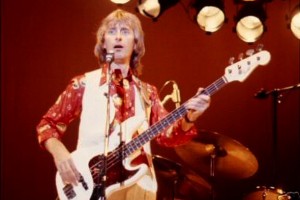 Born in the UK in 1946, Dee Murray grew up during the golden age of British rock’n’roll. He began playing bass as a teenager, listening to the current rock and R&B records of the time. His first band, The Mirage, formed in 1965 and released a few singles on CBS records before moving to the Philips label and finally Page One Records, a label run by Dick James. In addition to working with the label, James owned a studio and began using Murray as a session player with different songwriters, including Elton John. In 1969, Murray left The Mirage and joined the Spencer Davis Group to tour and record the album Funky. A year later, Elton John began looking for a new touring band and formed a trio with Murray and Nigel Olsson.
Born in the UK in 1946, Dee Murray grew up during the golden age of British rock’n’roll. He began playing bass as a teenager, listening to the current rock and R&B records of the time. His first band, The Mirage, formed in 1965 and released a few singles on CBS records before moving to the Philips label and finally Page One Records, a label run by Dick James. In addition to working with the label, James owned a studio and began using Murray as a session player with different songwriters, including Elton John. In 1969, Murray left The Mirage and joined the Spencer Davis Group to tour and record the album Funky. A year later, Elton John began looking for a new touring band and formed a trio with Murray and Nigel Olsson.
Between 1970 and 1975, Murray toured alongside Elton John and recorded on some of his most noteworthy albums. Though he only made a brief appearance on Tumbleweed Connection, he can best be heard on John’s live record, 11-17-70, as well as Honky Chateau and Goodbye Yellow Brick Road. After working on Captain Fantastic and the Brown Dirt Cowboy, John dismissed both Murray and Olsson from the band and the rhythm section went to Los Angeles in search of other session work.
Once moving to the United States, Murray recorded and toured with a number of artists, including Rick Springfield, Jimmy Webb, Yvonne Ellliman, Bob Weir, Alice Cooper, and John Prine. He rejoined Elton John’s band for a brief time in the 1980s and later moved to Nashville, TN. After a long bout with cancer, Murray passed away in 1992.
Let’s Talk Style
Accompanying a master like Elton John is no small task and Murray shines by executing carefully crafted music while imparting his own style. He implements a classical approach to soprano-bass counterpoint, playing a specific bass note to compliment the vocal melody. Many of these harmonic movements are dictated by John’s intentional chord voicing, where playing C over E (1 over 3) supports the movement between the chords with clever voice leading in the bass. This combination of carefully thought out note choices with a keen awareness of the song arrangement makes for a particularly musical approach to ballad playing.
When it comes to rock and roll, Murray’s sense of time brings a spirited and energetic charge to the music. He tends to play on or on top of the beat, creating a sense of momentum and urgency without being overbearing or rushing. This helps drive the band and, combined with his forceful right hand attack, pushes the group to play with excitement. His fills are remarkably fearless as he jumps registers, takes advantage of different rhythms, and includes hints of dissonance and chromaticism.
Where Can I Hear Him?
“Goodbye Yellow Brick Road” (Elton John: Goodbye Yellow Brick Road)
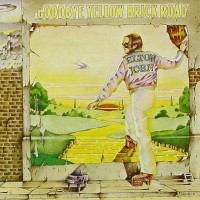 An amazing study in beautifully crafted popular music, Murray’s bass line provides the perfect counterpoint to the vocal melody. His steady quarter notes coincide with the movement of the chords, further accenting the voices in the bass. As the song progresses, he adds a swing to the song with grace notes, transitional fills and a slightly busier approach.
An amazing study in beautifully crafted popular music, Murray’s bass line provides the perfect counterpoint to the vocal melody. His steady quarter notes coincide with the movement of the chords, further accenting the voices in the bass. As the song progresses, he adds a swing to the song with grace notes, transitional fills and a slightly busier approach.
Listen: iTunes | Amazon MP3
“Grey Seal” (Elton John: Goodbye Yellow Brick Road )
 This tune features Murray as the energetic and driving force of the band, complete with his punchy bass tone that dominates the mix. He pushes the music forward and provides momentum by playing slightly on top of the beat, sneaking in syncopated triplet and root-fifth-octave flourishes throughout the pedaling sections. Joining in with the melodic lick to conclude the choruses, he settles back into the double eighth-note punches in the verse. The band then transitions into a high-energy, gospel-like groove to ride out the song with Dee adding chromatic fills and brief accents in the higher register.
This tune features Murray as the energetic and driving force of the band, complete with his punchy bass tone that dominates the mix. He pushes the music forward and provides momentum by playing slightly on top of the beat, sneaking in syncopated triplet and root-fifth-octave flourishes throughout the pedaling sections. Joining in with the melodic lick to conclude the choruses, he settles back into the double eighth-note punches in the verse. The band then transitions into a high-energy, gospel-like groove to ride out the song with Dee adding chromatic fills and brief accents in the higher register.
Listen: iTunes | Amazon MP3
“After Tea” (Spencer Davis Group: Funky)
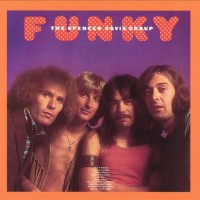 A constantly moving and undeniably melodic approach, Murray’s bass line guides the listener through the song. His playing is very “current” for the time and place (UK, 1969), with a bouncy, Beatle-like feel. Using chord inversions, arpeggios, and quick chromatic lines, he creates a counter melody to the vocal line. By mimicking the rhythm of the vocals, leaving space for drum fills, and adhering to the specific patterns in the verses and choruses, it’s clear that he carefully crafted the bass line to fit the song.
A constantly moving and undeniably melodic approach, Murray’s bass line guides the listener through the song. His playing is very “current” for the time and place (UK, 1969), with a bouncy, Beatle-like feel. Using chord inversions, arpeggios, and quick chromatic lines, he creates a counter melody to the vocal line. By mimicking the rhythm of the vocals, leaving space for drum fills, and adhering to the specific patterns in the verses and choruses, it’s clear that he carefully crafted the bass line to fit the song.
Listen: iTunes | Amazon MP3
How about you? What’s your favorite tune or album with Dee Murray? Please share with us in the comments.
Ryan Madora is a professional bass player, author, and educator living in Nashville, TN. In addition to touring and session work, she teaches private lessons and masterclasses to students of all levels. Visit her website to learn more!

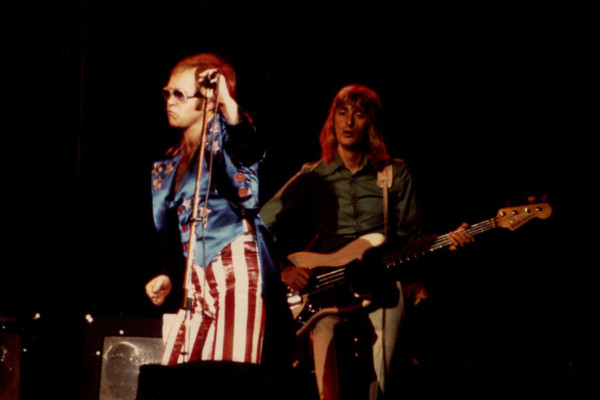
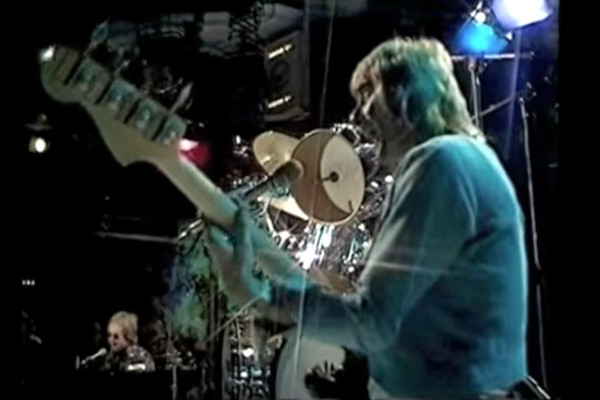

So glad to see this! Dee Murru was definitely one reason I decided at an early age that Bass is the most incredible instrument ever. He tears it up on 11-17-70! Thanks Ryan
MURRY. Sorry for the typo!
It’s M U R R A Y :-D
Elton John’s “11-17-70” is one of my all-time favorite albums – and the primary reason is Dee Murray’s bass playing. Such incredible tone.
I was recently fortunate enough to buy one of Dee Murray’s old basses and listened to 11-17-70 all the way home with the bass in the back seat. I got all misty-eyed over it, as he has always been a musical inspiration. His performance on 11-17-70 is one of the reasons I wanted to play bass. I think it’s the second best live album ever, right after The Who’s Live At Leeds. If you haven’t heard it, track it down and put on the headphones.
Hey Bill,
Just wondering which bass of his you picked up and where it was being sold. I’m a big Dee fan so am always interested in knowing what gear he had and where any of it may be now.
Dave
Hi Dave,
It’s an Ovation Magnum 1, with the adjustable mute and stereo output. It looks like this:
http://s255.photobucket.com/user/yannis_kontos/media/VintageHottiesFolder/1977OvationMagnum1Bass.jpg.html
except it has a metal pickguard. I don’t know how long he had it, but I bought it from a guitarist here in Nashville. They used to jam together when Dee lived (and died) here, and Dee gave it to the guitarist as a gift. The last song he played on it was “Rocket Man.” It came with one of Dee’s business cards. I framed it and have it hanging on the wall in my office.
Bill
Hi Bill,
Thanks for sharing that information on it. I actually was good friends with Maria (his widow who sadly passed away in 2012). I have his original 1982 fretted Steinberger that he used on tour with EJ in 82-84 and on the last 2 albums he recorded with him. Someone else has his 82 fretless Steinberger. You probably have seen pictures of that one if you have visited the talkbass website. The family still has his 3rd one that he picked up in NYC at the end of the 84 tour.
Dave
Absolutely great bassist ! Certainly a good pick for bass players we should all know .Great style and moving bass lines.
Thank you for this, always loved his playing! I have a request for your column. Could you talk about Alan Spenner. In my opinion one of most underrated bass player. His playing on the original recording of Jesus Christ Superstar is beyond description! The bass part on ‘What’s The Buzz’ is phenomenal.
Thanx
Dee Murray was an outstanding Bass player. Listen to The Ballad of Danny Bailey off GYBR and listen to his rhythmic Bass lines. If you really want to hear his incredible playing ability, find the Elton John album 11-17-70. A Live album with piano, bass and drums only. Incredible! Dee had to carry 2 parts, bass and guitar……using his bass.
That whole album he was incredible !!!!!!!!!!!!!
Grey Seal !!!!!!!!!!
I have always absolutely loved Grey Seal
Dee was by far and away one of the greatest bass players to come out of late 60s/early 70s. Besides his work with Elton, he also has some other great recordings around if you know where to look.
Not mentioned often is his work with Ray Fenwick on his only solo album “Keep America Beautiful, Get a Haircut”. Ray was in Spencer Davis Group with Dee in late 68 and 1969 and they were really good friends. That was recorded in late 71-early 72 around the same time as Elton’s Honky Chateau and also features other Elton band members Nigel Olsson, Roger Pope, and Caleb Quaye. Dee is the only bass player on the album.
http://www.allmusic.com/album/keep-america-beautiful-get-a-haircut-mw0000658339
Ray also recorded “Guitar Orchestra” which is an album with Mick Grabham (of Procol Harum fame) around the same time of mostly instrumental guitar heavy songs. Dee is also the only bass player on that album and Nigel is on drums of a couple of tracks and lead vocals on one of them. While the album was recorded in the early 70s, it was never released until the late 90s due to copyright issues with the lead off song on the album.
http://www.allmusic.com/album/guitar-orchestra-mw0000047048
While both of those albums are a good listen for some good vintage Dee, probably the best largely unknown Dee work is the 1979 self title debut (and only album) from Van Dunson. Van was a piano player so all of the songs are piano driven like they were on any Elton album. Dee, once again, is the only bass player on the album and he also provides all the backing vocals. This album also is the missing link between Dee’s classic sound and tone of the early 70s Elton records and his more modern (for the time) effects/flanger pedals heavy sound he got into from 82-84 with Elton. Here he maintains a lot of his signature tone from the early “Goodbye Yellow Brick Road” days but adds in some effects pedals on some of the tracks to fill out the sound. The album is long out of print but amazon has it available as mp3 and also a cd manufactured on demand and both even comes with a few bonus tracks. Anyone who like Dee will enjoy this album. Honestly I even like it better than most of the 80s Elton stuff Dee was on. Listen to some samples of all the songs here.
http://www.amazon.com/Van-Dunson/dp/B005SXR44O/ref=tmm_msc_swatch_0?_encoding=UTF8&sr=8-1&qid=1427511000
Hi Dave, I have done some research regarding the “Guitar Orchestra” album… I really would like to hear this album. Is it possible to order it anywhere? Dee Murray was my bass inspiration and Nigel is just awesome! I would love to get my hands on this album. If you have any information, it would be greatly appreciated. Thank you!
On Rocket Man, his high notes on the bass evoke a mystical, stellar, space ship quality.
I agree! Dee was one of my all-time favourite bass players. So sad that he died so young :-/ John
Thanks for the article. I rather enjoyed seeing more on this incredible, underrated bassist who definitely held his own both creatively and rhythmically.
Would you happen to know what bass he uses on Love Lies Bleeding? I would guess a Rick 5001 from the sound but all photos of him show him using Fenders.
Outstanding bassist. And along with Nigel Olsson and Davey Johnston, the best backing vocalists anywhere. Dee shines on every Elton track he’s on. If I had to names some faves: “Funeral for a Friend/Love Lies Bleeding” and “High Flying Bird.”
Funeral for a Friend / Love Lies Bleeding
His counterpoint to Elton’s “whoooo” at the end of the choruses in Saturday Night’s Alright For Fighting is one of the best bits of bass line in rock and roll.
“Funeral For A Friend/Love Lies Bleeding.” Some of the tastiest licks I’ve ever had the pleasure of hearing.
“Saturday Night’s Alright (For Fighting).” Sounds like he’s trying to tear the bass apart with his bare hands.
Dee Murray was an underappreciated master of the instrument.
I admire scores of bass players, but Murray was a giant.
Have been listening to Dee Murry since Good By Yellow Brick road came out in 73” !. It is now almost 2021,, & I have been a musician of various sorts since those days.
Always messed around on Bass,, but seriously started playing it around 14 years ago,, & am also almost 60 now.
Every time I play to him, or listen,, I still pick up more parts & style that he did. ”Incredible talent’ ‘ !
Absolutely one of my top fav. Bass players of all time !!
Elton John said that he was the ”best” Bass player he ever played with.
Hi All, I have just read all this, and as the Bassist in the Beyond The Yellow Brick Road Show here in Australia with Kim Hoffman as EJ, I have been studying his parts and musicality for years. I use a Vintage 67 P for the older songs, a Brubaker KXB5 Kevin made for me in 2012 I collected at NAMM plus a Yamaha 2010 TRB5P for the modern Steinberger sounds and solos he did. I have loved what Matt Bissonette has brought to the show. Absolute honour to recreate those Iconic and classic basslines, and after many years, I still enjoy the songs as much as when i had the daunting task of learning them.
THANK YOU all for you passion we share for Dee, his gift he gave us and the opportunity to keep it alive.
Dee was a very, very good and reliably solid bassist as well as singer and in my opinion, Elton did his best work when Dee, Nigel Olsson and Davey Johnstone were his backing musicians – honestly, Elton could never have asked for a better backing band than that of Davey, Dee and Nigel. Ray Cooper joined Elton’s band in 1974, but the reason why he has been on-and-off with the band is because he has commitments to other artists as well.
I never understood why Elton fired Dee and Nigel so abruptly just before “Captain Fantastic” was released, because it wasn’t like they were becoming increasingly unreliable due to drugs and alcohol. I have read somewhere that Elton later regretted this action and whereas the line-up of Dee, Davey and Nigel, with or without Ray, lasted five albums, a live album and two reunion 80’s albums, the line-up that made “Rock of the Westies” and “Blue Moves” only lasted through those two albums, perhaps because Elton realized that it was a mistake to fire Dee and Nigel the way that he did.
Been listening to Dee since 73.
Been messing with Basses ect. since the mid 70’s,, but seriously started playing 15 years ago.
Listened to ”Some one saved my e tonight”, for the bazillionth time,, but picked up more of what Dee did in that song this eve,, on an old ”Hi fi” that I just got dialed in….. It’s kind’a like I just heard it all over again !
All I gott’a say is frigg’n – ”WOW” on his bass parts !!
”Incredible”,, is the single word that I can say for the ”EPIC” playing in that song !!
It’s so off beat & original,, it’s ”really hard” to try & duplicate.
My 2 cents.
Ian
Brilliant analysis. I learn so much from this type of informed description of music.
Thanks for your amazing analysis of Dee’s musical genius. I could never explain technically why he’s so great. I just know that when I listen to him play, it hits me right in the heart. When he rocks, he puts me on my feet, and his ballads move me to tears. Thanks for explaining what I couldn’t explain and telling a younger generation about an amazing artist gone much too soon.